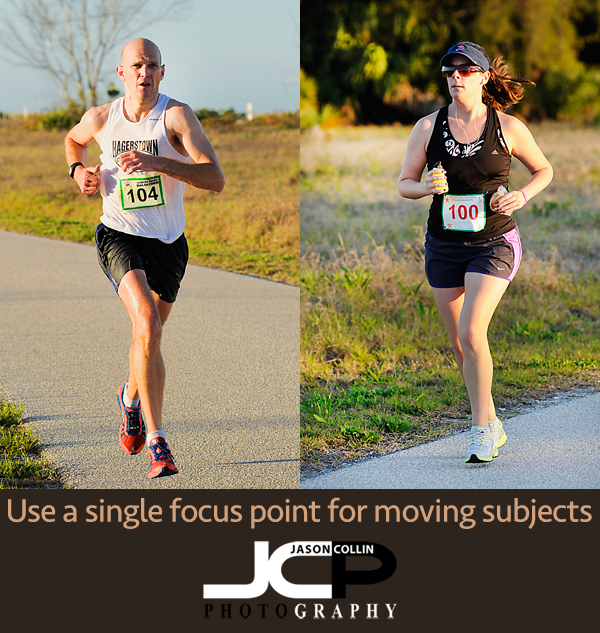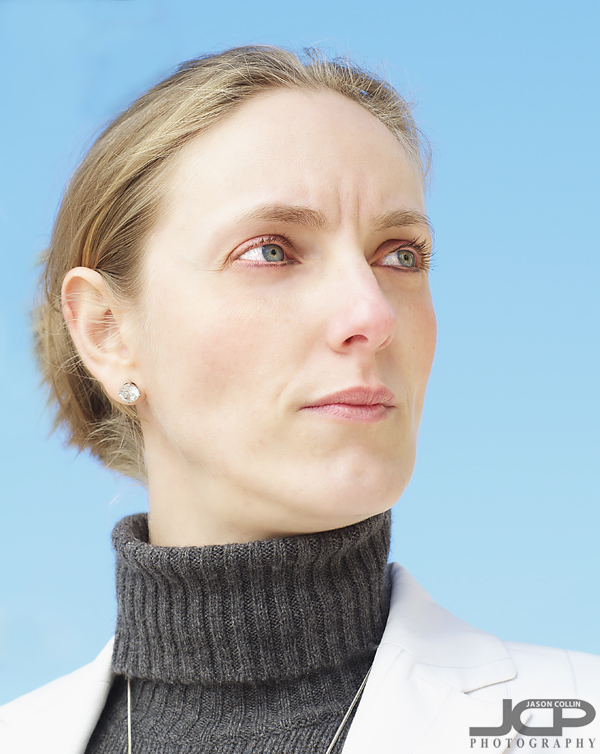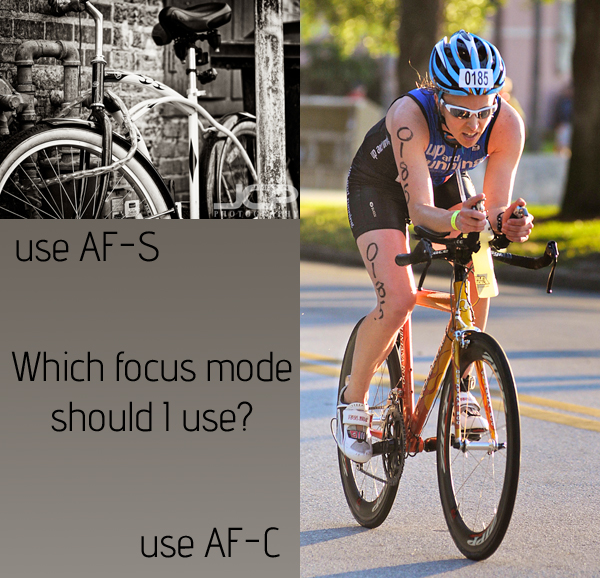 There are a number of reasons why a moving subject may appear out of focus in a photograph. One reason could simply be because the focus point(s) were not on the subject. For still subjects, I always use a single focus point. For moving subjects where the subject is not largely filling the frame, even in the examples above of runners, I use a single focus point as well. By using a single focus point (in the center) when photographing the runners I could track them as they ran past me and I knew for sure that I was getting them in focus because the only focus point available was right on them. There was no risk of back-focusing on the background which can happen when using multiple focus points (11, 21, 51, etc). In this case, I did not want the camera trying to pick out the subject from the background which is what happens when using multiple focus points. I selected a single focus point, kept it center, and kept that locked onto each runner. Of course I was using AF-C (One Shot) focus mode and a minimum shutter speed of 1/500th--the other two things needed to have any chance at freezing of moving subject in a photograph.
There are a number of reasons why a moving subject may appear out of focus in a photograph. One reason could simply be because the focus point(s) were not on the subject. For still subjects, I always use a single focus point. For moving subjects where the subject is not largely filling the frame, even in the examples above of runners, I use a single focus point as well. By using a single focus point (in the center) when photographing the runners I could track them as they ran past me and I knew for sure that I was getting them in focus because the only focus point available was right on them. There was no risk of back-focusing on the background which can happen when using multiple focus points (11, 21, 51, etc). In this case, I did not want the camera trying to pick out the subject from the background which is what happens when using multiple focus points. I selected a single focus point, kept it center, and kept that locked onto each runner. Of course I was using AF-C (One Shot) focus mode and a minimum shutter speed of 1/500th--the other two things needed to have any chance at freezing of moving subject in a photograph.
So if you find you are having trouble getting a moving subject in focus (or even a still subject), use a single focus point (often in the center) and put it right on the subject you want to be in focus in the frame.


